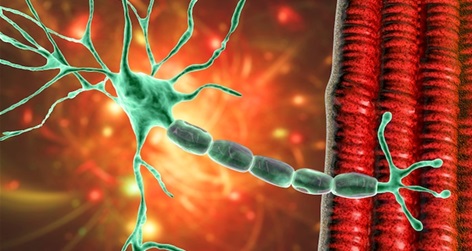Why in the NEWS?
- Around 59 people in Pune have been affected with Guillain-Barre Syndrome, a rare neurological condition in which the body's immune system attacks the nerves.

Key Points:
- Guillain-Barre syndrome (GBS) is a rare neurological condition in which the body's immune system attacks the nerves, causing weakness, numbness, or even paralysis.
- GBS is not only rare, but its exact causes are also unknown. Most people with Guillain-Barré syndrome have experienced symptoms of the infection at least six weeks before GBS symptoms appear.
What will you read next in this topic?
- What is Guillain-Barré syndrome (GBS)?
- Causes of Guillain-Barré syndrome:
- Symptoms of Guillain-Barre syndrome:
- Treatment of Guillain-Barre syndrome:
What is Guillain-Barré syndrome (GBS)?
- Guillain-Barré syndrome (GBS) is a rare and serious neurological disorder in which the body's immune system mistakenly attacks its own nerves.
- The syndrome mainly affects the body's peripheral nervous system, which sends messages from different parts of the body to the brain and spinal cord.
- As a result, it can cause symptoms such as muscle weakness, numbness, and sometimes paralysis.
- It can be an emergency, especially when the nerves are so severely affected that breathing problems occur.
Causes of Guillain-Barré syndrome:
- Guillain-Barré syndrome often occurs after a viral or bacterial infection, such as the flu, Zika virus, H1N1 (swine flu), or a gastrointestinal (digestive tract) infection.
- When the body fights these infections, sometimes the immune system doesn't work properly and attacks the body's own nerves.
- As a result, nerve function stops and weakness and other problems arise in the body.
- In some cases, the cause of Guillain-Barre syndrome is not completely clear, but it may be associated with a history of infection or other environmental causes.
Symptoms of Guillain-Barre syndrome:
- The symptoms of Guillain-Barre syndrome usually develop a few weeks after infection.
- The initial symptoms include weakness, numbness or tingling in the hands and feet.
- This weakness may gradually spread to other parts of the body, especially from the bottom up. Some of the major symptoms include:
- Weakness in hands and feet:
- The person may have problems moving his hands and feet properly.
- Numbness and tingling in the feet:
- The initial symptoms may include numbness and tingling in the feet or hands.
- Muscle weakness:
- The person may have difficulty walking and may feel pain in the muscles.
- Breathing difficulties:
- If the condition of the disease is more severe, the respiratory system may also be affected, causing difficulty in breathing.
- Paralysis:
- In some cases, this syndrome can cause paralysis in other parts of the body, such as the face or upper body, causing the person to be unable to move their muscles.
- Vision problems:
- In some cases, vision may become blurred or other vision problems may occur.
Treatment of Guillain-Barre syndrome:
- There is no permanent cure for Guillain-Barre syndrome, but timely treatment can control the symptoms and improve the person's condition.
- The main aim of treatment is to prevent the over activity of the immune system and prevent further damage to the nerves.
- The following treatment methods are commonly used:
- Plasmapheresis:
- In this, the plasma of the blood is removed from the body and replaced with fresh plasma.
- This process removes harmful antibodies present in the body, which damage the nerves.
- Intravenous immunoglobulin (IVIG):
- In this, high quality immune globulins (antibodies) are given to the patient, which helps in controlling the activity of the body's immune system and reduces the attack on the nerves.
|
Q. What is Guillain-Barré Syndrome (GBS)?
(a) A rare heart disease
(b) A rare neurological disease where the body's immune system attacks the nerves
(c) A digestive system disorder
(d) A viral infection affecting the respiratory system
|



